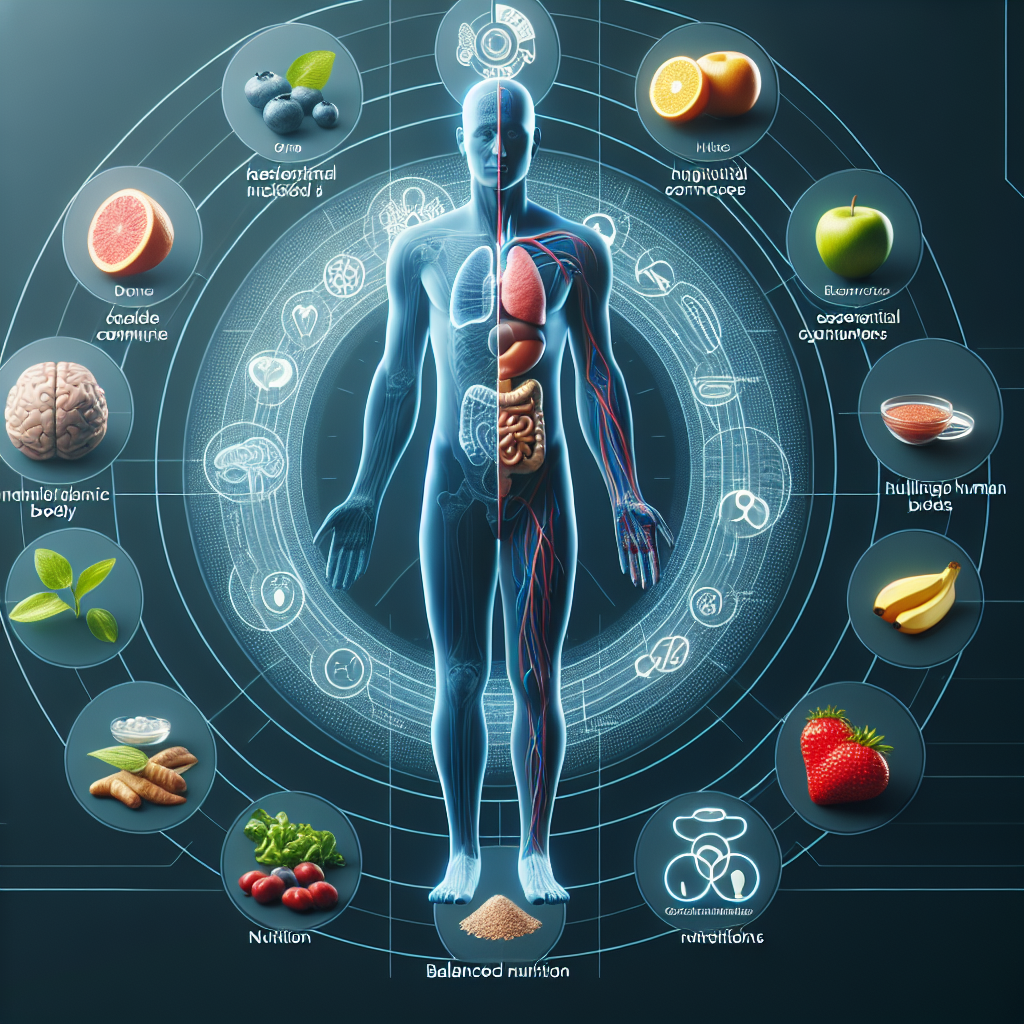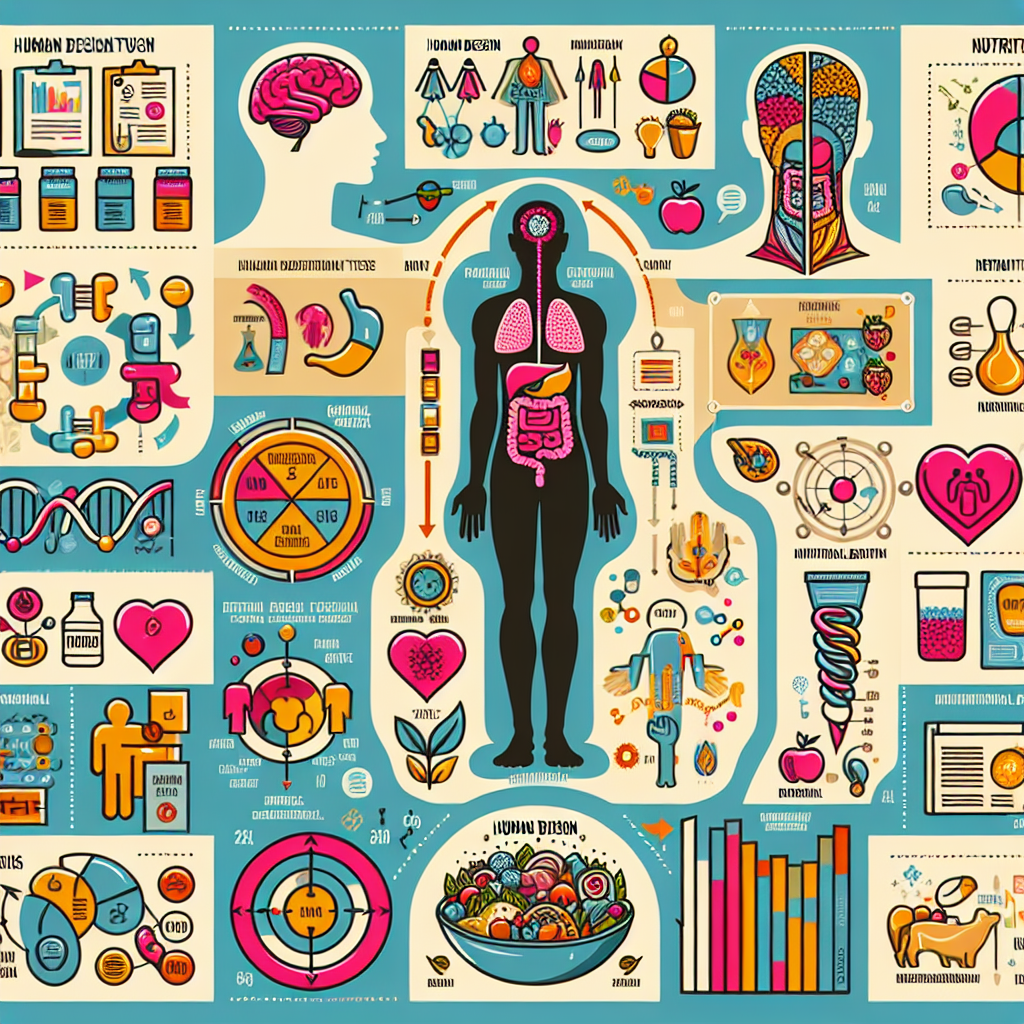Understanding Human Design for Nutritional Balance

Discover the secrets of Human Design for Nutritional Balance today! Learn how to optimize your health and wellness by understanding your unique design. Start your journey now by clicking here.
Exploring the Role of Human Design in Achieving Nutritional Balance
Understanding human design for nutritional balance is a fascinating journey that merges the principles of genetics, biochemistry, and quantum physics. This approach to health and wellness is based on the belief that each individual has a unique design, which can be used as a guide to achieve optimal health and well-being. This design, which is determined by our genetic makeup, influences not only our physical characteristics but also our mental, emotional, and spiritual attributes.
Human design is a comprehensive system that provides a blueprint of our unique genetic makeup. It is based on the understanding that our genes, which are the building blocks of our bodies, play a crucial role in determining our health and well-being. Our genes determine how our bodies function, how we respond to environmental factors, and how we process nutrients. Therefore, understanding our human design can provide valuable insights into our nutritional needs and help us achieve a balanced diet.
The concept of human design for nutritional balance is rooted in the belief that each individual has a unique nutritional profile. This profile is determined by our genetic makeup and is influenced by various factors such as our age, gender, lifestyle, and overall health status. By understanding our unique nutritional profile, we can make informed decisions about our diet and lifestyle that can help us achieve optimal health and well-being.
One of the key aspects of human design for nutritional balance is the concept of bio-individuality. This concept recognizes that each individual has unique dietary needs and that there is no one-size-fits-all approach to nutrition. Bio-individuality takes into account our genetic makeup, lifestyle, and personal preferences, and uses this information to create a personalized nutrition plan. This plan is designed to provide the right balance of nutrients that our bodies need to function optimally.
Another important aspect of human design for nutritional balance is the understanding of the body’s energy centers. According to human design theory, our bodies have nine energy centers, each of which is associated with specific physiological functions. These energy centers influence how we process and utilize nutrients, and understanding their functions can help us make better dietary choices.
For instance, the spleen center, which is associated with the immune system, plays a crucial role in determining our nutritional needs. If this center is defined (or active), it means that we have a strong immune system and can tolerate a wide range of foods. However, if this center is undefined (or inactive), it means that we have a sensitive immune system and may need to be more careful with our diet.
In conclusion, understanding human design for nutritional balance is a holistic approach to health and wellness that takes into account our unique genetic makeup and nutritional needs. It provides a blueprint for personalized nutrition, helping us make informed decisions about our diet and lifestyle. By understanding our human design, we can achieve a balanced diet that supports our overall health and well-being. This approach to nutrition is not about following a strict diet or counting calories, but about listening to our bodies and nourishing them in a way that aligns with our unique design.
The Impact of Human Design on Personalized Nutrition Plans

Understanding human design for nutritional balance is a fascinating and emerging field that combines the principles of genetics, astrology, and the chakra system to create a personalized blueprint for health and wellness. This unique approach to health and nutrition is based on the belief that each individual has a unique design that influences their physical, emotional, and mental well-being. This design, in turn, impacts the way we process food, our nutritional needs, and our overall health.
Human design is a system that categorizes individuals into one of four types: Manifestors, Generators, Projectors, and Reflectors. Each type has a unique way of interacting with the world, and this extends to their nutritional needs as well. For instance, Manifestors are believed to have a fast metabolism and may require more protein, while Generators, who are considered the workhorses of the human design types, may need a diet rich in carbohydrates to sustain their energy levels. Projectors, on the other hand, are thought to have a slower metabolism and may benefit from a diet low in carbohydrates and high in proteins and fats. Reflectors, the rarest type, are believed to be highly sensitive to their environment and may require a more personalized approach to nutrition.
The concept of human design extends beyond just the type of food we eat. It also considers the way we eat, the environment in which we eat, and even the time of day we eat. For example, some individuals may find that they digest food better when they eat in a calm and peaceful environment, while others may find that they need to eat at specific times of the day to maintain their energy levels. This personalized approach to nutrition acknowledges that there is no one-size-fits-all diet and that each individual has unique nutritional needs.
The impact of human design on personalized nutrition plans is profound. By understanding our unique design, we can tailor our diet to meet our specific needs, leading to improved health, increased energy levels, and a greater sense of well-being. This approach to nutrition is not about following a strict diet or counting calories. Instead, it’s about listening to our bodies, understanding our unique needs, and nourishing ourselves in a way that supports our overall health and well-being.
However, it’s important to note that while human design can provide valuable insights into our nutritional needs, it should not replace professional medical advice. If you’re considering making significant changes to your diet, it’s always a good idea to consult with a healthcare professional or a registered dietitian. They can provide you with personalized advice based on your specific health needs and goals.
In conclusion, understanding human design for nutritional balance offers a unique and personalized approach to health and wellness. By understanding our unique design, we can make informed decisions about our diet and lifestyle that support our overall health and well-being. Whether you’re a Manifestor, Generator, Projector, or Reflector, understanding your human design can help you achieve nutritional balance and lead a healthier, more balanced life.
Decoding the Connection between Human Design and Nutritional Balance
Understanding human design for nutritional balance is a fascinating journey into the realm of holistic health and wellness. It is a unique approach that combines elements of astrology, the I Ching, Kabbalah, and the chakra system to create a personalized blueprint of your genetic makeup. This blueprint, or ‘design’, can provide profound insights into your health, personality, and life purpose. One of the most intriguing aspects of human design is its potential to guide us towards optimal nutritional balance.
The connection between human design and nutritional balance is rooted in the belief that each of us has a unique dietary regimen that aligns with our individual energy type. According to human design theory, there are four main energy types: Manifestors, Generators, Projectors, and Reflectors. Each type has specific dietary needs and digestive capacities that, when understood and respected, can lead to improved health, vitality, and overall well-being.
Manifestors, for instance, are believed to thrive on a high-protein diet and benefit from eating small, frequent meals throughout the day. Generators, on the other hand, are said to have a robust digestive system and can handle a more diverse range of foods. Projectors, with their sensitive energy, may require a lighter, more plant-based diet, while Reflectors, being the most unique of the types, may find that their dietary needs fluctuate with the lunar cycle.
The concept of human design extends beyond the types of foods that are beneficial for each energy type. It also delves into the manner in which food is consumed. For example, some people are designed to eat in a calm, quiet environment, while others may benefit from eating in a more lively, social setting. Some may need to eat their meals at specific times of the day, while others may need to listen to their body’s natural hunger cues.
Moreover, human design also considers the impact of our thoughts and emotions on our digestive health. It suggests that our mental and emotional state at the time of eating can significantly influence how our body processes and assimilates the nutrients from our food. Therefore, cultivating a positive mindset and a relaxed, joyful attitude towards eating is as important as the food itself.
It’s important to note that human design is not a one-size-fits-all approach to nutrition. It acknowledges the uniqueness of each individual and encourages us to honor our own body’s wisdom. It invites us to become more attuned to our body’s signals and to make dietary choices that resonate with our unique energy type.
In conclusion, understanding human design for nutritional balance offers a fresh perspective on health and wellness. It provides a roadmap to navigate our dietary choices and to cultivate a more harmonious relationship with food. By aligning our diet with our unique energy type, we can optimize our health, boost our energy levels, and enhance our overall well-being. However, as with any dietary approach, it’s essential to consult with a healthcare professional before making significant changes to your diet.